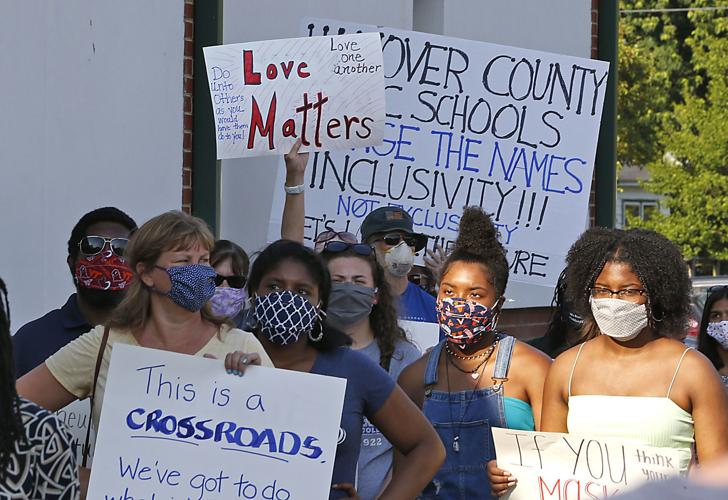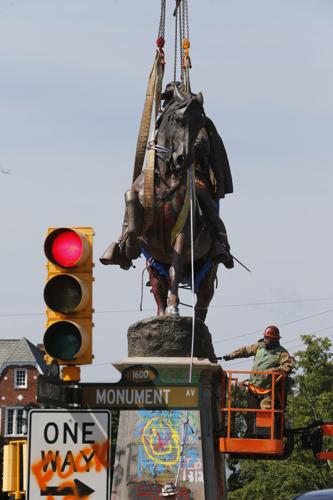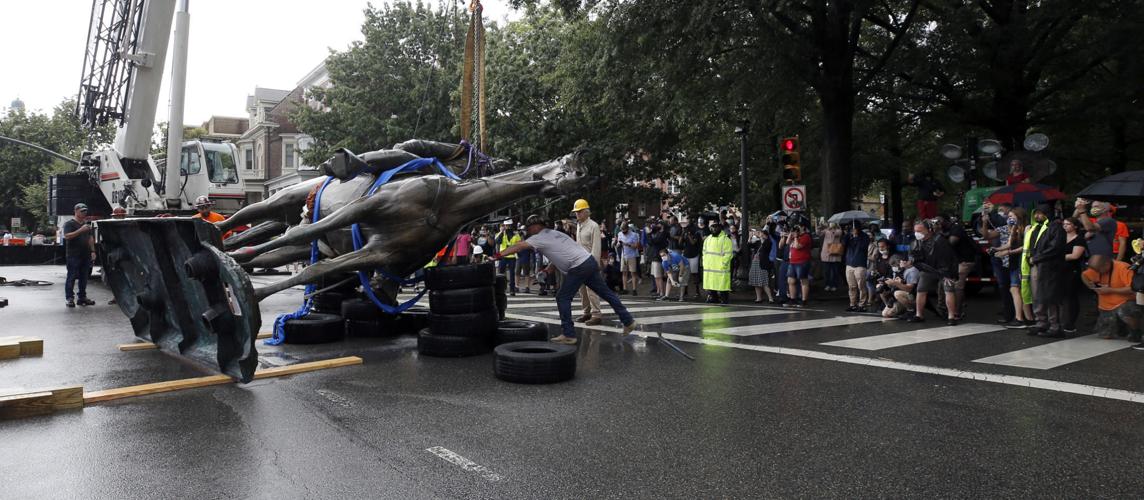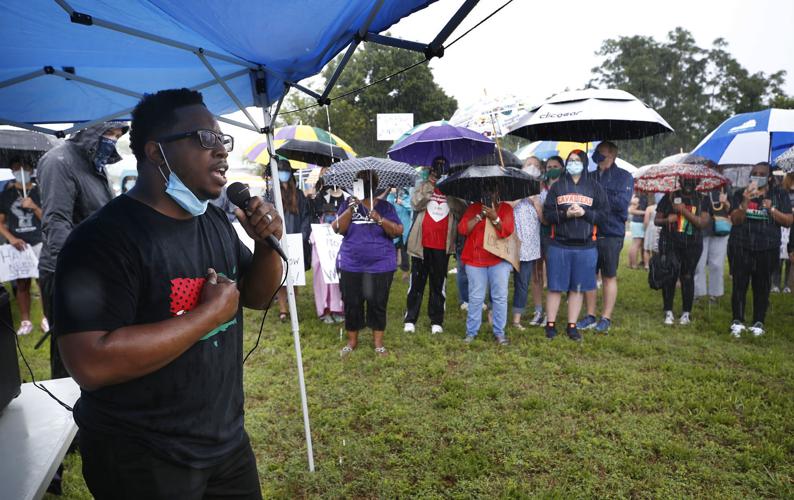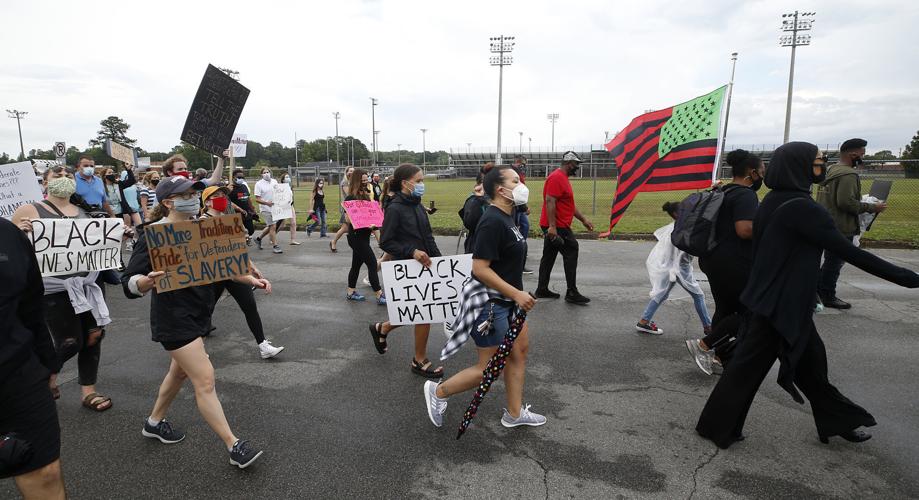Hanover County appears intent to live on in infamy as the Prince Edward County of the 21st Century.
In 1959, Prince Edward became the poster child for Massive Resistance, closing its public schools and establishing a private all-white academy — Black students be damned.
Racist intransigence was wrong in Prince Edward then.
It’s wrong in Hanover County now.
“The overwhelming majority of longtime residents in Prince Edward County regret that Massive Resistance not only happened, but that it played such a leading role in creating it and sustaining it,” says Justin Reid, a Prince Edward native and director of community initiatives for Virginia Humanities. “I think honestly there were many people who felt that way while it was happening, but because of peer pressure and intimidation and fear of retribution, were simply afraid to speak out.
“If the majority of white residents who knew and felt what was happening was wrong had had the courage to speak out, we would have been able to prevent so much heartache.”
Which brings us to the heartache experienced by generations of students of color in Hanover.
During the same year Prince Edward closed its schools, Lee-Davis High School, home of the “Confederates,” opened its doors in Mechanicsville.
In 1968, the year the Rev. Martin Luther King Jr. was murdered, the Hanover School Board named a new middle school for Stonewall Jackson.
This was no coincidence.
Today, the Hanover school system continues to honor treason in service of human enslavement. The board can’t seem to convince itself to do the right thing, shooting down an effort this past month to change the school names.
School board members consistently have declined interview requests from Richmond Times-Dispatch reporters about the subject, citing a legal challenge from the Hanover NAACP filed last August.
Hoping to prod Hanover and other school districts onto the right side of history is Gov. Ralph Northam, who wrote a letter Monday urging school board chairs to reject Confederate school names.
“When those names reflect our broken and racist past, they also perpetuate the hurt inextricably woven into this past,” he wrote. “When public schools are named after individuals who advanced slavery and systemic racism, and we allow those names to remain on school property, we tacitly endorse their values as our own. This is no longer acceptable.”
A growing number of localities agree, reversing the Lost Cause glorification that was a response to the civil rights movement and school desegregation.
During the 1950s and ’60s, Georgia redesigned its state flag to incorporate the Confederate battle flag in its design; South Carolina planted the rebel flag atop its state capitol.
For decades, we largely acquiesced. But hate woke us from our slumber.
Five years ago, white supremacist Dylann Roof murdered nine black churchgoers during a Bible study at Emanuel African Methodist Episcopal Church in Charleston, S.C. Roof’s embrace of the Confederate battle flag shredded plausible deniability about that symbol’s cheek-to-jowl dance with hate and subjugation.
Two years later, a Neo-Nazi killed Heather Heyer with his car in the aftermath of a white supremacist rally in Charlottesville, where marchers defended that city’s Confederate statues.
Today, amid an ascendant Black Lives Matter movement, Mississippi is removing the Confederate emblem from its state flag. And Manassas, a place as steeped in Civil War lore as Mechanicsville, renamed its Stonewall Jackson High School last week.
Avi Hopkins, an African American alumnus of Lee-Davis, wants similar change in Hanover.
“I’m very proud that our governor recognizes the importance of not only diverse communities, but also communities of inclusiveness. I hope that the leadership and courage displayed in this moment by Gov. Northam will be replicated in Hanover County,” he said.
“All students deserve a space where they can feel safe in being their authentic selves. The long cast of these racist shadows needs to be removed and replaced with the light of hope for all students.”
The Instagram postings of Black@HanoverCPS provide vivid evidence that African American students in the county, to a significant degree, have not felt safe being authentic.
But then, as now, young people drove the movement toward change. Black students in Prince Edward staged a walkout from their shabby school, leading to a lawsuit that became part the Brown v. Board of Education decision.
Sixteen-year-old Barbara Johns and her fellow plaintiffs displayed more moral courage than the decision makers in Hanover, whose cowardice will make the county a cautionary tale as the nation transitions to a more enlightened era.
“This a bad economic development decision. This is a bad tourism decision. But most importantly, this is a decision that’s harming a considerable number of residents in your community,” Reid said.
“It’s clear ignorance is no longer in season. We know this history. Now is the time to act.”
Hanover, the clock is ticking.


